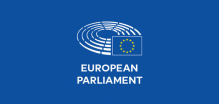The eco-friendly drones set to be deployed will help scientists study artificial, electrical charges within clouds to induce 'electrical seeding'. This groundbreaking experiment in the UAE will see the research team collaborate with a team of leading meteorologists to develop a theoretical concept that studies the effect of electrical charges on rain-bearing clouds.
Manager of the UAE Research Program for Rain Enhancement Science, Alya Al Mazroui disclosed that senior officials at the National Center of Meteorology and Seismology (NCMS) are working closely with Giles Harrison, who is a professor at the University of Reading and who specializes in Atmospheric Physics at the academic faculty. Harrison has since returned to the UK - but has plans to revisit the UAE regularly in the coming months to spearhead the launch of the experiments.
The new experiments represent a shift away from the traditional form of cloud seeding missions performed by the UAE. Traditionally, the nation embarks on 100 cloud-seeding missions in the UAE airspace from January to March using the national weather bureau's six dedicated light twin-propeller aircraft equipped with dozens of salt-dispensing flares. A plane enters a cloud that appears to be promising, salt crystal flares are then subsequently fired into naturally occurring overcast skies to encourage the formation and release of cloud moisture into raindrops. However, the new approach in this experiment would see aerial vehicles putting electric charges into the clouds.
Mazroui insisted that the new project represents 'great promise to a water-stressed country like the UAE'. The project aligns with the UAE Research Program for Rain Enhancement Science's aim of providing real solutions to the country's challenges of water scarcity. He expressed his excitement at the professor's innovative approach - and claimed he was confident the project would be a success.
Mazroui said, "We look forward to supporting the professor's innovative work through our technical resources and resident expertise. We are also confident that such projects will reaffirm the status of Abu Dhabi and the UAE as an international center of excellence for rain enhancement research."
In a statement, Harrison said: "An analysis of the potential of electrical charges to enhance rainfall could offer new techniques for boosting precipitation levels. The UAE Research Program for Rain Enhancement Science is playing a unique role in facilitating the growth of productive international scientific networks while ensuring that researchers have access to the materials, equipment and data that they need."


















